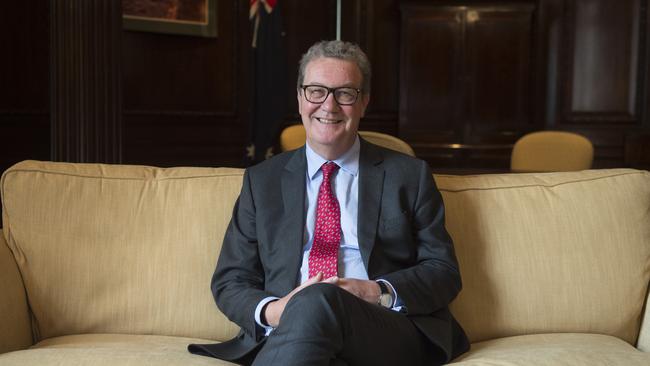FBI ‘interviewed Alexander Downer over Russia links to White House’
DFAT declined to comment on whether the interview was a break with protocol and which Australian official authorised the move.

The FBI secretly sent two agents to London to interview Australia’s High Commissioner Alexander Downer in a move that kicked off its Russian investigation that has since morphed into a major threat to the US president Donald Trump.
News of the previously undisclosed FBI interview in early August 2016 shows how closely the Australian Government cooperated with the FBI in the early days of an investigation that has become the most dominant and decisive judicial probe into a president in a generation.
A report in the New York Times reveals that two FBI agents were dispatched to London to meet with Mr Downer only hours after the FBI began its Russian investigation at the end of July 2016.
The assignment was so secretive that few in the FBI knew of it and it was given a secret code-name of ‘Crossfire Hurricane’ after the Rolling Stones lyric “I was born in a crossfire hurricane.’
The FBI wanted to learn what Mr Downer, a former opposition leader and foreign minister, had learned from his meeting with Mr Trump’s campaign adviser George Papadopoulos.
Mr Downer had drinks with Mr Papadopoulos in London in May during which the adviser had told the diplomat that Russia had political dirt on the Democratic presidential candidate Hillary Clinton. The adviser did not disclose the nature of that information
Mr Downer reported the exchange to Canberra which, after some time, passed the information onto US authorities.
According to the New York Times, the decision to allow the FBI to interview Mr Downer occurred ‘after tense deliberations between Canberra and Washington’ in which ‘top Australian officials broke with diplomatic protocol’ to allow Mr Downer to be interviewed by the FBI.
The FBI probe into Russian interference in the US election intersected with the initial closure of the FBI’s probe into Mrs Clinton’s misuse of her private email server. Both investigations would haunt the FBI and tarnish the reputation of its then chief James Comey who was eventually sacked by Mr Trump last May.
The Justice Department Inspector General will this month release its long-awaited report into the FBI’s conduct in the Clinton investigation which is expected to be critical of the way the bureau handled the crucial probe which had the potential to influence the outcome of the presidential election.
Mr Downer told The Australian last month that during their drink at the Kensington Wine Room Mr Padadopoulos had told him that he had damaging information on Mrs Clinton, but he did not reveal what it was.
“It seemed quite interesting,” Mr Downer said
“He didn’t say dirt, he said material that could be damaging to her. No, he said it would be damaging. He didn’t say what it was.’’
But Mr Downer did not disclose at that time that he had been interviewed by the FBI.
Mr Papadopoulos has since pleaded guilty to lying to officials in relation to the investigation of special counsel Robert Mueller and is currently cooperating with the Mueller investigation.
The FBI used the tip provided by Mr Downer to pursue the links between the Trump campaign team and Russian officials. When Mr Trump sacked Mr Comey in May last year Mr Mueller was appointed as special counsel to conduct a broader probe into Russian interference in the 2016 election as well as links between the Trump team and Moscow.
Mr Trump as labelled Mr Mueller’s investigation a ‘witch hunt’ perpetrated by Democrats and has maintained that there was no collusion between his team and Russia to influence the election result.
US intelligence agencies claim that Russia meddled in the election to support a Trump victory.
(Cameron Stewart is also US Contributor for Sky News Australia).
DFAT declined to comment when asked whether the interview was a break with protocol and which Australian official authorised the move.
“These questions relate to ongoing investigations in the United States. As a matter of principle and practice, the Australian Government does not comment on matters relevant to active investigations,” a spokesman said.



